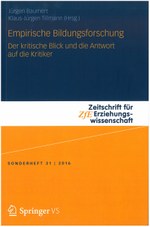For 70 years, DIPF has provided its research and science infrastructure services and thus contributed to improving educational quality and conditions of educational success in Germany.
1950s: The Beginning
The Institute was founded on October 25 1951, following a resolution by the government of the federal state of Hesse, as the “Hochschule für Internationale Pädagogische Forschung“ (University of International Educational Research, HIPF), as a public foundation with legal capacity.
The US-American military office, the federal state of Hesse and the city of Frankfurt am Main were involved in the process of the Institute’s establishment. Following the experiences in the time of National Socialism, they sought international stimulus for educational research. The concept for a higher education institute of international education and research had been drafted by Professor Erich Hylla, who had been a responsible officer for the Central Institute for Education and Instruction in Berlin until 1933 and who had returned to Germany as a reporter for education commissioned by the US government in 1946. A considerable contribution was also made by Erwin Stein. In his function as the State Minister of Education in Hesse, he had voiced the demand for a university of international educational research in December 1948.
The HIPF began its work in Frankfurt am Main in 1952, and became a first institutional basis for international empirical educational research in Germany. In Hylla’s opinion, the focus of empirical research on education and childcare was to be determined “by the requirements of the times” whilst the scientific procedures were to be characterised by “reliable, objective methods for the determination of facts”. Moreover, the HIPF enabled interdisciplinary collaboration on the basis of scientific pedagogy from the very beginning.
HIPF becomes DIPF
In the mid-1960s, the institute was included in the so-called “Königstein state agreement“, and was given a new constitution, wherein the foundation’s purpose was defined as practical empirical educational research with an international perspective. At the same time, the university was renamed and became the „German Institute for International Educational Research (Deutsches Institut für Internationale Pädagogische Forschung, DIPF)”.
In addition to empirical research, DIPF at this time also offered training through research for pedagogical staff and professionals in education administration. With teachers on special leave at the Institute, practical knowledge could be incorporated into the research conducted at DIPF.
In the 1970s and 1980s, DIPF gradually emerged as a research-only Institute. Its work increasingly focused on the international comparison of educational issues. Not least owing to new electronic opportunities for exchange and networking in science, it became possible to expand and improve international exchange at DIPF. The Institute’s understanding was to be a point of contact for the collaboration with international guests from the fields of science and politics in order to inform on the structure, special characteristics and successes of the German education system.
DIPF as part of the Leibniz Association
Relevant structural changes at DIPF took place in the early 1990s following the integration of parts of the former GDR’s Academy of Pedagogical Science, the Pedagogical Central Library and the Center for Information and Documentation. Earlier, the Pedagogical Central Library had integrated the Teachers’ Library that had existed for more than a hundred years. As part of DIPF, it was newly founded as the Research Library for the History of Education (Bibliothek für Bildungsgeschichtliche Forschung, BBF).
Since 1990, DIPF has been a member of the Leibniz Association, which originated from the “Arbeitsgemeinschaft Blaue Liste” (“Blue List” consortium), renamed "Wissenschaftsgemeinschaft Gottfried Wilhelm Leibniz" (Leibniz-Gemeinschaft – Leibniz Association) in 1997. The Leibniz Association since then has provided the central institutional framework for scientific co-operation at the Institute, shaping its profile and ongoing quality assurance of the work at DIPF.
Educational research and information
The establishment of new departments was crucial for the Institute’s further development: From 1998 to 2001, particular attention was paid to setting up educational information services, the result of which is today’s Information Center for Education. Since the millennium, research and information services have been at the core of the Institute’s profile. Research investigations of the systemic, institutional and individual levels of education with its reciprocal effects contribute to this profile. With setting up the department for Education and Human Development in 2007 the Institute re-defined the individual level of action of learning and development.
Today, DIPF’s international perspective is based on comprehensive research and analyses on national school quality, educational governance and scientific infrastructure. A systematic international comparison of the German education system is thus possible. Furthermore, the department for Educational Quality and Evaluation plays a significant role in the implementation of the international PISA studies. In 2012, a professorship for Research on the History of Education was inaugurated at DIPF: consequently, a fifth research department was set up. Together with the department for Educational Governance, this research domain strengthens the institutional profile in Berlin.
The new DIPF building on Frankfurt Westend campus that has been completed in 2018 allowed to combine many departments of the DIPF in one building. Since its move, the institute is officially named DIPF | Leibniz Institute for Research and Information in Education.
DIPF Archive
The institutional archive of the DIPF contains administrative files, research materials and collections. These materials can be used to trace the historical development of the Institute since its establishment in 1951 until today, decision-making processes in educational politics and in science, networks of persons involved, and research activities. The archive is part of the BBF-Archive.
